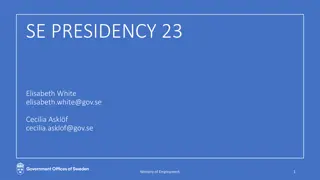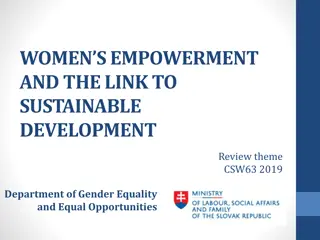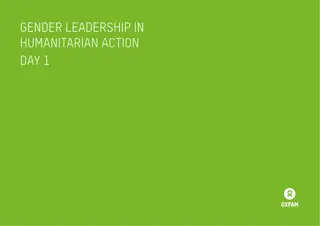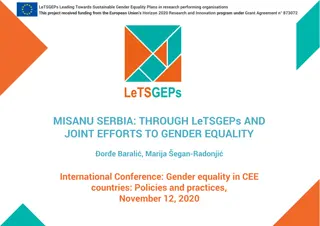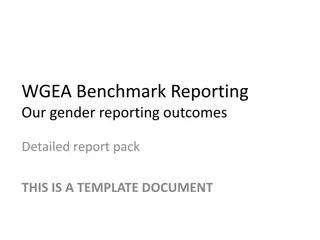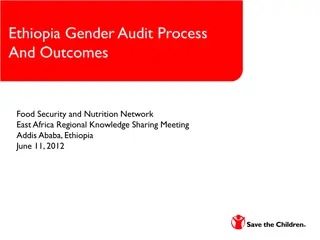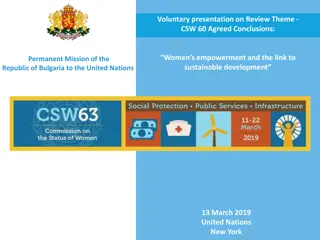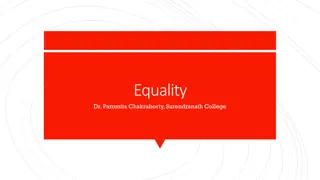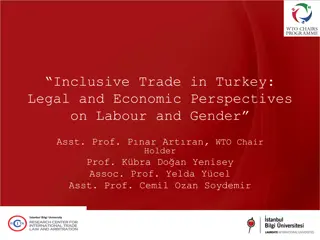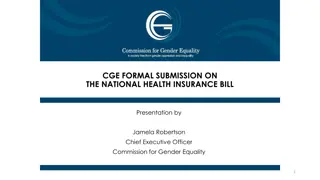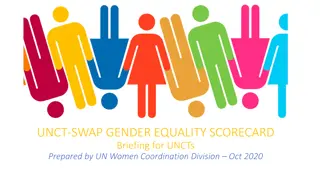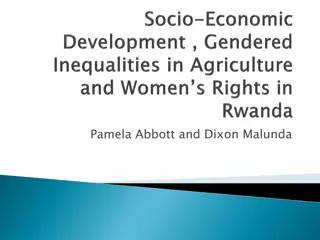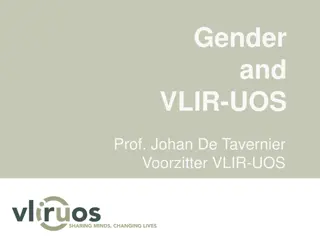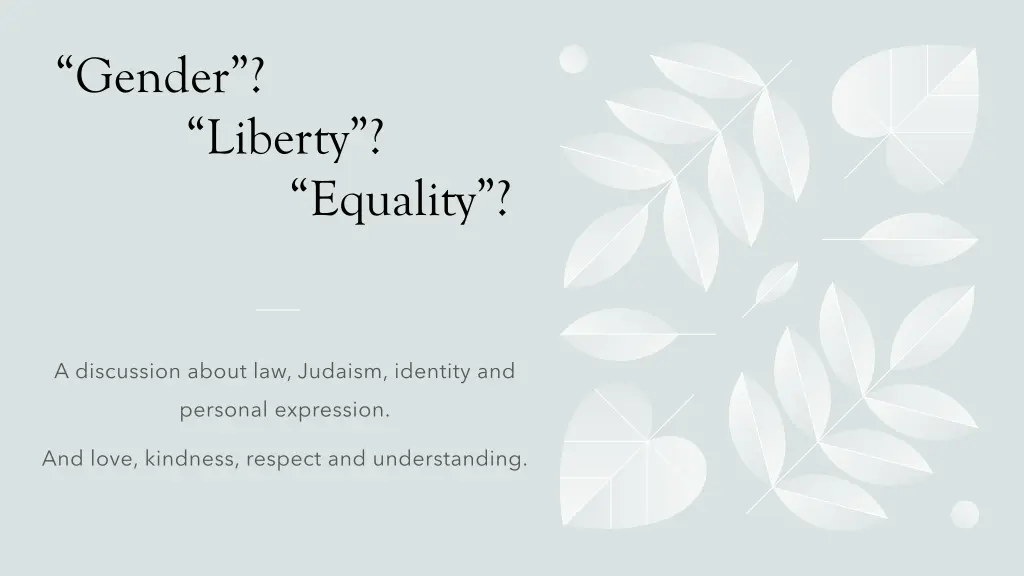
Exploring Gender, Equality, and Theological Worldviews
Delve into gender, equality, and the impact of theological worldviews on societal perspectives. Explore questions of certainty, law protection, and the quest for social justice. Discover the interplay of gender identity and legal constructs through thoughtful discussions and perspectives.
Download Presentation

Please find below an Image/Link to download the presentation.
The content on the website is provided AS IS for your information and personal use only. It may not be sold, licensed, or shared on other websites without obtaining consent from the author. If you encounter any issues during the download, it is possible that the publisher has removed the file from their server.
You are allowed to download the files provided on this website for personal or commercial use, subject to the condition that they are used lawfully. All files are the property of their respective owners.
The content on the website is provided AS IS for your information and personal use only. It may not be sold, licensed, or shared on other websites without obtaining consent from the author.
E N D
Presentation Transcript
Gender? Liberty ? Equality ?
Do we share first principles* from which to have meaningful conversation? (*a priori, not requiring proof or deduction) I think so.
A Gorilla in the Room? Sense Certainty? Are you certain whether gender is a natural fact or a social construct ? Are you certain whether gender identity should or should not be treated as a neutral fact or construct with no legal distinction?
The 'Genesis' of Gender A Theological Worldview
The 'Genesis' of Gender A Theological Worldview Worldviews: How do you/I/we/they see the world? Where do we ground our reliable inquiry? Physics, Chemistry, Economics, History, Biology, Psychology, Sociology, Isms, Astrology, Political Science, Jurisprudence, Theology What's your major now, on this topic? From a lens of theology, three simple questions for Rabbi Jamie: 1. Reb. Jamie while we stand on one foot (the origin of "footnote"), please summarize all Jewish thought on the subject of gender equality, or, some highlights/framework. 2. Reb. Jamie has Judaism, more so or less, contributed to male hegemony or to human beings recognized as equally possessed of liberty, equality and personal dignity? 3. Reb. Jamie, for G-odness sake, as a white sis male rabbi, can you lead the way forward to gender equality and social justice? As a Jewish community, how should we approach gender in our personal and political lives?
Are "gender" behaviors protected by law? (yes) Why and How?
Law and Love: Spoiler Not the Same. (not enemies either) What are we talking about when we create laws? Short Course: 1. Declaration of Independence ( all men are created equal endowed by creator with unalienable rights including life, liberty and the pursuit of happiness). 2. 14th Amendment to Constitution specifies individual liberty is a right to be respected by all states limited by due process, and that all persons are entitled to equal protection under law. K I N D N E S S , R E S P E C T , U N D E R S T A N D I N G
Expression of Gender Identity: A Constitutional Liberty As used in the Constitution, liberty means freedom from arbitrary and unreasonable restraint upon an individual. Freedom from restraint refers to more than just physical restraint, but also the freedom to act according to one's own will. On numerous occasions the Supreme Court has sought to explain what liberty means and what it encompasses. For example: Meyer v. Nebraska: [liberty] denotes not merely freedom from bodily restraint but also the right of the individual to contract, to engage in any of the common occupations of life, to acquire useful knowledge, to marry, establish a home and bring up children, to worship God according to the dictates of his own conscience, and generally to enjoy those privileges long recognized at common law as essential to the orderly pursuit of happiness by free men. IBolling v. Sharpe, [liberty] is not confined to mere freedom from bodily restraint. Liberty under law extends to the full range of conduct which the individual is free to pursue, and it cannot be restricted except for a proper governmental objective. Ingraham v. Wright, liberty includes freedom from bodily restraint and punishment and a right to be free from and to obtain judicial relief, for unjustified intrusions on personal security. * Importantly, the right is qualified and limited, weighed against the importance of a legitimate state interest.
Laws Created by Congress Civil Rights Act of 1964 (US): The Civil Rights Act of 1964 was landmark legislation intended to address prejudice occurring in the U.S. at the time. Through its 11 titles, it banned discrimination and segregation based on race, religion, natural origin, and sex in employment and in all public places, such as schools, hotels, restaurants, churches, and hospitals. A series of laws in the 1960s and 1970s clarified and expanded the discrimination ban to include age and disability discrimination and also applied it to housing and voting rights. Applied Currently (US): On June 15, 2020, the U.S. Supreme Court held that Title VII of the Civil Rights Act of 1964 (Title VII) s prohibition on employment discrimination based on sex encompasses discrimination based on sexual orientation and gender identity. Bostock v. Clayton County, GA. The Bostock majority concluded that the plain meaning of because of sex in Title VII necessarily included discrimination because of sexual orientation and gender identity. US Dept of Health and Human Services, Office of Civil Rights Extension to "private enterprises": Heart of Atlanta Motel v. US (Interstate Commerce Clause)
Colorado Extends Federal Protections through State Law Colorado follows state anti-discrimination and civil rights laws and guidance. On May 20, 2021, Colorado enacted law expanding prohibitions against discrimination.The law calls out the need to protect all persons regardless of disability, race, creed, color, sex, sexual orientation, gender identity, gender expression, marital status, national origin, or ancestry in all places of public accommodation, including schools. The Colorado Department of Regulatory Agencies Civil Rights Commission has issued rules that state All [public] covered entities shall allow individuals the proper use of gender-segregated facilities that are consistent with their gender identity. Gender-segregated facilities include but are not limited to, restrooms, locker rooms, dressing rooms and dormitories. The term gender identity is defined by the rules as follows: Gender identity means an innate sense of one s own gender.
Ending Up Thinking and Doing Being and Becoming Ontology and Epistemology
Privacy in Public Places. Is it Noneya? Dr. Judith Butler Simone Bouvier Sojourner Truth Partially Examined Life Part 1 Part 2 Part 3 K I N D N E S S , R E S P E C T , U N D E R S T A N D I N G
Thank you K I N D N E S S , R E S P E C T , U N D E R S T A N D I N G

